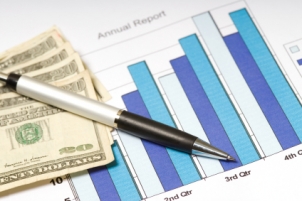
Fitch Claims Home Prices Overvalued Given Unemployment Data
By Stevie Duffin Updated on 4/18/2013By Daniel Duffield
For the week ending on April 13, unemployment claims increased by 4,000, removing some of the market optimism that had been present after the 42,000 drop in jobless claims last week.
In the latest measurement, roughly 352,000 jobless claims were reported, rising from the revised estimate of 348,000 a week previous.
Currently, the shifting four-week average for jobless claims, which tends to reflect the market’s employment cycles more accurately, increased by 2,750 to 361,250 total unemployed filings.
Fundamentally, unemployment claims vary from week to week, thereby causing each weekly report to be somewhat less reliable than those that illustrate more prolonged market trends. However, coinciding with the sluggishness within the job market, home prices are continually increasing.
Due to the fact that the nation’s unemployment data typically has a direct and noticeable effect on the housing market, Fitch Ratings is taking a not-so-optimistic approach to the recent rise in home values, even going as far as to label them overestimated.
Fitch Ratings disclosed a note on such research, stating that in spite of the persistent increase of the Case-Schiller Index, the company’s view on current home prices, adding that they see an overvaluing of approximately 10% in effect with a 2% nominal overestimation when factoring in inflation and the upward drive of prices.
In clarifying this approach to anticipating home price trends, the company stated that several critical economic factors that are inherently connected with housing have not been moving in correlation with the current rise in home prices, one of these prime factors being unemployment.
According to the ratings firm, labor participation has fallen to the lowest point within the past 30 years, despite the progress made for headline unemployment. When correcting by taking into account participation rate, unemployment averages approximately 10% across the U.S., and as a result, Fitch remains modest in terms of home pricing.
With such overvaluing of home prices, one can only hope that another housing bubble does not form, although certainly the effects would not be as devastating as the last.

Didn't find the answer you wanted? Ask one of your own.
-
 What You Need To Know About Escrow
View More
What You Need To Know About Escrow
View More
-
 President Obama Initiates Lower FHA Mortgage Insurance Premiums
View More
President Obama Initiates Lower FHA Mortgage Insurance Premiums
View More
-
 What is Quantitative Easing?
View More
What is Quantitative Easing?
View More
-
 The 5 New Mortgage and Housing Trends for Summer 2013
View More
The 5 New Mortgage and Housing Trends for Summer 2013
View More
-
 Fannie Mae profitability skyrockets
View More
Fannie Mae profitability skyrockets
View More
-
 Foreclosure protections for more soldiers after lawmakers draft bill
View More
Foreclosure protections for more soldiers after lawmakers draft bill
View More
-
 FHFA: HARP success follows low mortgage rates, February refinance volume strong
View More
FHFA: HARP success follows low mortgage rates, February refinance volume strong
View More
-
 Use of Mortgage Interest Deduction Depends on Where You Live
View More
Use of Mortgage Interest Deduction Depends on Where You Live
View More
-
 HUD will sell 40,000 distressed loans in 2013
View More
HUD will sell 40,000 distressed loans in 2013
View More
-
 Mortgage Principal Reduction Could Save Taxpayers $2.8 Billion
View More
Mortgage Principal Reduction Could Save Taxpayers $2.8 Billion
View More
-
 Mortgage Applications Regain Traction after Sluggishness, Rates Continue to Fall
View More
Mortgage Applications Regain Traction after Sluggishness, Rates Continue to Fall
View More
-
 HARP 3.0 Discussions Reveal Little Hope for HARP Update
View More
HARP 3.0 Discussions Reveal Little Hope for HARP Update
View More
-
 Home Prices Rise in February According to LPS Data
View More
Home Prices Rise in February According to LPS Data
View More
-
 Balancing Act: House Committee Hears Opposing Viewpoints Over Mortgage Interest Rate Deduction
View More
Balancing Act: House Committee Hears Opposing Viewpoints Over Mortgage Interest Rate Deduction
View More
-
 Near Record Low Mortgage Rates Buoy Housing Recovery
View More
Near Record Low Mortgage Rates Buoy Housing Recovery
View More
Related Articles
Ask our community a question.
Searching Today's Rates...

Featured Lenders

